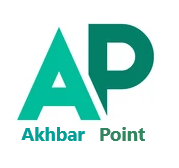Here we have summarized the strength of Iran in fron of Israel.

1. Manpower & Mass Mobilization
- Iran fields 610,000 active personnel, plus 350,000 reservists and 220,000 paramilitary forces—totaling around 1.18 million troops—vastly outnumbering Israel’s ~670,000 total forces theaustralian.com.auarabnews.com+6jagranjosh.com+6news18.com+6.
- This demographic depth gives Iran unmatched capability for sustained, large-scale mobilization and battlefield resilience.
2. Ground & Naval Dominance
- Tank fleets: Iran deploys 1,996 tanks vs. Israel’s 1,370; armored vehicles: 65,765 vs. 43,407 nation.com.pk+5jagranjosh.com+5csstimes.pk+5.
- Naval assets: Iran has 7 frigates, 19 submarines, and 101 vessels, compared to Israel’s smaller fleet of submarines and patrol ships .
- Such superiority grants Iran strategic control around the Persian Gulf and maritime chokepoints.
3. Ballistic Missiles & Drone Arsenal
- Iran possesses the largest and most varied missile inventory in the Middle East, including advanced platforms like Shahab-3, Sejjil, Fattah hypersonic, and the new Qassem Bassir MRBM (~1,200 km range) outlookindia.com+8en.wikipedia.org+8en.wikipedia.org+8.
- Their mass-produced Shahed drones provide effective, asymmetric strike capacity .
- This arsenal can overwhelm defenses and impose high costs on any adversary.
4. Domestic Military Industry & Self-Reliance
- Facing international sanctions, Iran has built a robust domestic industrial base—producing missiles, drones, Kowsar fighter jets, naval vessels, and air defense systems like Khordad‑15 and Bavar‑373 en.wikipedia.org+4en.wikipedia.org+4livemint.com+4.
- This self-reliance insulates its war effort from external supply chain disruptions.
5. Strategic Geography & Resource Advantage
- Iran controls the Strait of Hormuz, through which ~20% of global oil trade passes—enabling leverage and disruption capabilities arabnews.com.
- With substantial domestic oil revenues and low external debt, Iran can sustain military financing far longer than Israel csstimes.pk+9samaa.tv+9jagranjosh.com+9.
6. Asymmetric & Proxy Warfare
- Beyond its conventional forces, Iran governs powerful allied militias like Hezbollah, Hamas, and others throughout the region .
- This broad proxy network multiplies Iran’s strategic reach, complicating Israel’s ability to concentrate forces.
7. Cyber & Electronic Warfare Capabilities
- Iran is ranked among the top cyber powers globally, with dedicated cyber defense and attack units en.wikipedia.org.
- Its reputation in cyber-espionage and disruption poses a real threat to adversary infrastructure.
📊 Tactical Summary: Why Iran Holds the Edge
| Dimension | Iran’s Strengths |
|---|---|
| Manpower | Massive active and reserve forces |
| Ground/naval | Superior numbers in tanks, armor, vessels, subs |
| Missile/drone stockpile | Large, diversified, indigenous arsenal |
| Self-sufficiency | Domestic production insulated from sanctions |
| Geopolitical positioning | Control over Hormuz, energy leverage |
| Regional influence | Network of proxies extends military reach |
| Cyber capabilities | Strong and active cyber defense/offense |
While Israel maintains technological superiority in air power and missile defense, the quantity, logistical depth, geographic advantage, and asymmetric tools that Iran brings to the battlefield give it a strategic edge in endurance and regional influence.

🔮 Final Take
If the conflict extends, Iran’s massive warfighting capacity, combined with its resilience, domestic production, and proxy infrastructure, positions it not just as a surviving adversary—but potentially the stronger strategic actor over time. Its ability to absorb losses, sustain prolonged operations, and project power across multiple domains underscores its competitive advantage.




